Today's Masculinity Monday comes to us courtesy of Trey Stewart, who is more qualified to talk about masculinity than I am, by virtue of actually being a man. Also he's written for us before, and you can read that article here!
The idea for this post came from a Skype conversation with Debbi. As such, she deserves some of the credit for my coming up with the idea. As I read through the recent posts on toxic masculinity, I began to ask myself what nontoxic masculinity might look like. The thing is, when we look at toxic and nontoxic masculinity in the media, we have to remember that we're always seeing it portrayed through tropes and narrative conventions. Some of these tropes are good, some bad. The toxic part happens when there is only one way to be a “real” man, and only one set of tropes we use to define a "real" man in fiction.
Star Trek, then, is attractive to me as a lens though which to think about nontoxic masculinity, first because I am a HUGE Star Trek fan, but also because Kirk, Spock, and McCoy embody three distinct, but not always toxic, ways to be a man. By giving us three very different views of masculinity, Star Trek avoids the pitfall of defining it too narrowly, and instead posits that there are a lot of different ways to be a good man. Which is, well, good.
First, let's talk about Captain Kirk.
While Kirk was the first Starfleet captain in about 100 years to fight Romulans, defeated Khan (Ricardo Montalban), and outsmarted more than one cosmic entity, he does it all without becoming a character who revels in violence or views his personhood as an amalgamation of his victories, as we see in other more toxic representations of classic masculinity. Kirk’s masculinity is nontoxic precisely because he is more than just a warrior with a girlfriend on every planet. He is much more than that.
For example, Kirk's original plan for dealing with Khan - not in Wrath of Khan, but in the episode that set up that film called "Space Seed" - was to settle him on a planet of his own. The plan would have worked if the planet hadn’t shifted in its orbit to become close to a blackhole and therefore really not suitable for human habitation.
But Kirk has no way of knowing this in advance. His plan is actually very kind to Khan, and it's worth noting that he doesn't make these decisions unilaterally. In "Space Seed" after finally subduing Khan and stopping him from stealing the Enterprise, Kirk holds a trial publicly to determine his fate. In other words, Kirk does exactly what we wouldn't expect of a traditionally masculine hero in this situation, and yet Kirk still abides by the usual tropes of the masculine hero. Hell, Kirk basically invented half those tropes.
This is what makes it so interesting that the Captain Kirk who appears in JJ Abrams' rebooted Star Trek films is so representative of genuinely toxic masculinity. While the reboot Kirk (played here by Chris Pine) can be faulted for his violent confrontations with everyone from bar patrons to Khan (Benedict Cumberbatch) to the Klingons, the biggest shift is in his sexual behavior. The Kirk of the original series is always falling in love with another woman, sure, but the show makes it clear that Kirk genuinely has feelings for every woman he sleeps with. He might be out there seducing half the galaxy, but he's doing it because he falls in love very easily.
Not so in the rebooted series. For example, in the first movie, Kirk takes advantage of Orion cadet Gaila (Rachel Nichols) in order to get the codes necessary to reprogram the Kobayashi Maru scenario. Orion women are famous for their sexual openness.
Nonetheless, I suspect, and her reaction to the that allegations Kirk cheated on the test confirms, that Gaila wouldn’t have been sexually interested in Kirk had she known what he was up to. He used her. Kirk’s actions show that he doesn’t respect Gaila and more broadly play into the idea that if a woman is sexually promiscuous she is “asking for it” and doesn’t deserve respect.
Moreover, Kirk displays his lack of respect for Gaila’s friends in that he appears not to ask if Gaila’s roommate minds if she brings guys over. If you’ve seen the movie you know that Gaila’s roommate is Uhura (Zoe Saldana), who Kirk had expressed attraction to earlier in the movie. I understand that being caught in Uhura’s room is embarrassing, and that Uhura is an attractive woman, but that doesn’t justify hiding under the bed while Uhura undresses. That's not okay in any situation.
Basic decency would seem to dictate apologizing for being in Uhura’s room once she entered and doing so before clothing is removed. Also, I would hope that Starfleet Academy has a policy against spying on cadets. In case you hadn’t figured it out, as a man, this scene makes me angry with Kirk and JJ Abrams for, apparently, assuming such a scene would be titillating.
Even though the original series' Kirk has sex with numerous women throughout the show and movie sequels, he seems to genuinely respect them. For example, he stays out of Carol Marcus’ (Bibi Besch) life even though they have a child together (Star Trek: The Wrath of Khan) because she asks him to. While the decision itself is questionable, Kirk makes the choice out of respect for Carol.
Additionally, he inspired the Mirror Universe’s Marlena Moreau (Barbara Luna) to hope for a better world when she noticed he was different from her “evil” Kirk (TOS: “Mirror, Mirror”). Finally, given when Star Trek first aired, Kirk surrounded himself with a surprising number of competent women like Nyota Uhura (Nichelle Nichols), Janice Rand (Grace Lee Whitney), and Christine Chapel (Majel Barrett).
So here we can see that the original Captain James Kirk was a character whose representation of masculinity was actually quite healthy. He was capable of violence, but preferred peaceful solutions. He enjoyed sex and had a hell of a reputation, but he respected his partners and made sure their emotional needs came first. This is a large tonal shift from the way Kirk is now portrayed. Those same traits are stripped of their complexity, leaving the new Captain Kirk who doesn't seem to care who gets hurt around him and uses women like sex objects.
But enough about Kirk. Let's talk about Spock.
Spock (Leonard Nimoy in the original series) embodies a rational, intellectual, form of masculinity. I should also note that Spock has had something of an outsized impact on how I perform masculinity. Just a personal disclaimer.
In Star Trek, as you may be aware, there are three main versions of Spock: the original series, the Mirror Universe, and the reboot. I want to go through these really quickly. First, we don’t get to see much of the Mirror Universe Spock but he seems to represent a cold, ruthlessly logical, form of masculinity. Importantly, though, he seems to be aware of the problems with his version of masculinity. His self-awareness is his most important trait. In fact, most versions of the Mirror Universe Spock assume that he was responsible for turning the Empire toward peace.
Honestly, I’m not sure what to make of reboot Spock (Zachary Quinto). I like that he seems to be more emotional and to have a more obvious sense of humor, but he expresses his emotions in ways that make very little sense. For example, he begins his romantic relationship with Uhura when she is a student and he is her teacher.
In the 21st century that is the kind of thing that can get a person fired. I cannot imagine it being different in the 23rd century. Also, as someone who has been a teacher of a class where most of the students were women, I can say that it isn’t that hard to avoid having a relationship with a student. To the extent that reboot Spock is toxic, it is more because of his unhealthy emotional reactions and lack of proper boundaries than anything else.
Spock, as played by Leonard Nimoy, however, presents an interesting example of someone who, over about 160 years of life, develops from toxic to nontoxic masculinity. In his second episode, Spock gives the impression that he doesn’t even have emotions. Throughout the original series Spock embodies the stoic, dualistic ideas that logic and emotion are completely separate and that logic is clearly better.
This Vulcan ideal is toxic because it doesn’t work as a practical life philosophy. We know that Vulcans have emotions because every Vulcan ever seems to care about whether or not they get up in the morning. Given that emotions are a thing everyone has, the logical, but not Vulcan, thing to do would be to face them and integrate them into who one is as a person.
Spock illustrates the Vulcans’ toxic approach to emotions when he undergoes pon farr. In pon farr, a Vulcan’s biology strips away every vestige of emotional control and compels the person to have sex or die. While pon farr is technically a part of a Vulcan’s biology, and not a consequence of Vulcan philosophy, the experience would be far less traumatic if Vulcans just accepted their emotions. It's only because they repress so heavily that the mating season becomes a fight to the death.
Prior to Star Trek: The Motion Picture, Spock tries to purge himself of all emotion. The surprising aspect is less that it fails and more that some Vulcans seem to think they succeed. But what's even more interesting here is why Spock abandons his attempts to become truly and purely logical. Basically, Kirk needs him and so Spock abandons his attempt to purge himself of emotion.
As Spock gets older, and after he dies, he mellows a bit. For example, when Jean-Luc Picard (Patrick Stewart) accuses Spock of cowboy diplomacy in making an unauthorized move to the Romulan homeworld Spock reminds the captain that he has been engaging in such tactics since long before Picard was born. Also, Spock seems amused by reboot Kirk’s concern over damage to the timeline that might result from reboot Spock meeting original Spock. Clearly he's loosened up.
But, more relevantly, it's clear that Spock has changed. He's come to see that an embrace of pure reason is not the best way to live and not the best way to be a man. Instead, he shows that the integration of logic and emotion is necessary to be a well-rounded and complete person.
Finally, let's talk about Dr. McCoy, aka Bones.
What's interesting about Dr. McCoy is that, of the three main original series characters, Dr. Leonard H. McCoy (DeForest Kelley), is, in a sense, the most traditionally feminine. While he is portrayed as a brilliant medical researcher, McCoy’s basic function on the ship is to care for others, but this is never insinuated to mean that he is less of a man. His masculinity is nontoxic because it is a healthy way of living, but it benefits greatly from being seen in contrast to several other healthy forms of masculinity, like those outline above. Because McCoy's version of masculinity is just shown to be one of many ways to be a man, we see that it's not about masculinity or femininity at all, but about different roles.
One of the defining moments of McCoy’s life was the death of his father. McCoy’s father was suffering from an incurable disease. In order to save his father pain, and after much soul searching, McCoy decided to take his father off life support. Shortly thereafter, a cure for his father’s illness was discovered. For decades, McCoy felt guilty about taking his father off life support.
The incident is relevant to masculinity in that it is possible to care too much or to go awry even when motivated by concern for others. We don’t know enough about the details of McCoy’s father’s illness to figure out whether or not he made the right decision. However, properly caring for someone requires both the ability to logically weigh relevant factors and the ability to assertively seek their best interests. Both of these are qualities that McCoy displays in his time on the Enterprise.
As you would expect the Mirror Universe Dr. McCoy is, by all accounts, a terrible person whose masculinity is utterly toxic. The reboot Dr. McCoy, however, seems to be pretty similar to his original series counterpart, if a bit more exaggerated. For example, this McCoy hates space, not just transporters. At this point, I don’t have a clear sense of reboot McCoy as a man. Hopefully, future movies will shed some light on this. (Incidentally, I am somewhat fond of Dr. McCoy because he is a fellow southerner. He was born in Georgia and I was born in Alabama.)
What I find most interesting, though, about analyzing the men of Star Trek is seeing how their individual traits might line up with representations of toxic masculinity - or they might not - but how when taken as a whole, these three men work together to give a more complex picture of masculinity as a whole. Granted, it's a masculinity only of white men, but it's still worth noting that each of them presents his masculinity in a different way, and each of them is recognized as a fully masculine character.
It's also worth noting, as I have in this article, how those representations of masculinity have changed and become overall more toxic in the show's translation into the current reboots. It's most notable in what they've done with Captain Kirk, but there are signs of it in the other characters as well. They've been stripped down, robbed of their complexity, and made to fit more narrow archetypes that create a toxic and unhelpful image of what masculinity is, instead of being allowed to explore what it can be.
Trey Stewart has his PhD in Educational Psychology from the University of Alabama. After losing his job at the think tank, he started his own education research consulting/tutoring business. He loves Star Trek and has strong feelings about gender representation in science fiction.
The idea for this post came from a Skype conversation with Debbi. As such, she deserves some of the credit for my coming up with the idea. As I read through the recent posts on toxic masculinity, I began to ask myself what nontoxic masculinity might look like. The thing is, when we look at toxic and nontoxic masculinity in the media, we have to remember that we're always seeing it portrayed through tropes and narrative conventions. Some of these tropes are good, some bad. The toxic part happens when there is only one way to be a “real” man, and only one set of tropes we use to define a "real" man in fiction.
Star Trek, then, is attractive to me as a lens though which to think about nontoxic masculinity, first because I am a HUGE Star Trek fan, but also because Kirk, Spock, and McCoy embody three distinct, but not always toxic, ways to be a man. By giving us three very different views of masculinity, Star Trek avoids the pitfall of defining it too narrowly, and instead posits that there are a lot of different ways to be a good man. Which is, well, good.
First, let's talk about Captain Kirk.
“All right. [War is] instinctive. But the instinct can be fought. We're human beings with the blood of a million savage years on our hands, but we can stop it. We can admit that we're killers, but we're not going to kill today. That's all it takes! Knowing that we're not going to kill... today!" - Kirk to Anan 7 (TOS: "A Taste of Armageddon")Of the three main Star Trek characters, James Tiberius Kirk (William Shatner in Star Trek: The Original Series) most closely embodies the traditional "doesn’t take no for an answer" action hero. He is famous, among other things, for reprogramming the no-win Kobayashi Maru scenario to make it possible to win. Captain Kirk, in TOS, provides an interesting example of nontoxic masculinity couched in the tropes we've come to associate most with toxic masculinity.
While Kirk was the first Starfleet captain in about 100 years to fight Romulans, defeated Khan (Ricardo Montalban), and outsmarted more than one cosmic entity, he does it all without becoming a character who revels in violence or views his personhood as an amalgamation of his victories, as we see in other more toxic representations of classic masculinity. Kirk’s masculinity is nontoxic precisely because he is more than just a warrior with a girlfriend on every planet. He is much more than that.
For example, Kirk's original plan for dealing with Khan - not in Wrath of Khan, but in the episode that set up that film called "Space Seed" - was to settle him on a planet of his own. The plan would have worked if the planet hadn’t shifted in its orbit to become close to a blackhole and therefore really not suitable for human habitation.
But Kirk has no way of knowing this in advance. His plan is actually very kind to Khan, and it's worth noting that he doesn't make these decisions unilaterally. In "Space Seed" after finally subduing Khan and stopping him from stealing the Enterprise, Kirk holds a trial publicly to determine his fate. In other words, Kirk does exactly what we wouldn't expect of a traditionally masculine hero in this situation, and yet Kirk still abides by the usual tropes of the masculine hero. Hell, Kirk basically invented half those tropes.
This is what makes it so interesting that the Captain Kirk who appears in JJ Abrams' rebooted Star Trek films is so representative of genuinely toxic masculinity. While the reboot Kirk (played here by Chris Pine) can be faulted for his violent confrontations with everyone from bar patrons to Khan (Benedict Cumberbatch) to the Klingons, the biggest shift is in his sexual behavior. The Kirk of the original series is always falling in love with another woman, sure, but the show makes it clear that Kirk genuinely has feelings for every woman he sleeps with. He might be out there seducing half the galaxy, but he's doing it because he falls in love very easily.
Nonetheless, I suspect, and her reaction to the that allegations Kirk cheated on the test confirms, that Gaila wouldn’t have been sexually interested in Kirk had she known what he was up to. He used her. Kirk’s actions show that he doesn’t respect Gaila and more broadly play into the idea that if a woman is sexually promiscuous she is “asking for it” and doesn’t deserve respect.
Moreover, Kirk displays his lack of respect for Gaila’s friends in that he appears not to ask if Gaila’s roommate minds if she brings guys over. If you’ve seen the movie you know that Gaila’s roommate is Uhura (Zoe Saldana), who Kirk had expressed attraction to earlier in the movie. I understand that being caught in Uhura’s room is embarrassing, and that Uhura is an attractive woman, but that doesn’t justify hiding under the bed while Uhura undresses. That's not okay in any situation.
Basic decency would seem to dictate apologizing for being in Uhura’s room once she entered and doing so before clothing is removed. Also, I would hope that Starfleet Academy has a policy against spying on cadets. In case you hadn’t figured it out, as a man, this scene makes me angry with Kirk and JJ Abrams for, apparently, assuming such a scene would be titillating.
Even though the original series' Kirk has sex with numerous women throughout the show and movie sequels, he seems to genuinely respect them. For example, he stays out of Carol Marcus’ (Bibi Besch) life even though they have a child together (Star Trek: The Wrath of Khan) because she asks him to. While the decision itself is questionable, Kirk makes the choice out of respect for Carol.
Additionally, he inspired the Mirror Universe’s Marlena Moreau (Barbara Luna) to hope for a better world when she noticed he was different from her “evil” Kirk (TOS: “Mirror, Mirror”). Finally, given when Star Trek first aired, Kirk surrounded himself with a surprising number of competent women like Nyota Uhura (Nichelle Nichols), Janice Rand (Grace Lee Whitney), and Christine Chapel (Majel Barrett).
So here we can see that the original Captain James Kirk was a character whose representation of masculinity was actually quite healthy. He was capable of violence, but preferred peaceful solutions. He enjoyed sex and had a hell of a reputation, but he respected his partners and made sure their emotional needs came first. This is a large tonal shift from the way Kirk is now portrayed. Those same traits are stripped of their complexity, leaving the new Captain Kirk who doesn't seem to care who gets hurt around him and uses women like sex objects.
But enough about Kirk. Let's talk about Spock.
Spock (Leonard Nimoy in the original series) embodies a rational, intellectual, form of masculinity. I should also note that Spock has had something of an outsized impact on how I perform masculinity. Just a personal disclaimer.
In Star Trek, as you may be aware, there are three main versions of Spock: the original series, the Mirror Universe, and the reboot. I want to go through these really quickly. First, we don’t get to see much of the Mirror Universe Spock but he seems to represent a cold, ruthlessly logical, form of masculinity. Importantly, though, he seems to be aware of the problems with his version of masculinity. His self-awareness is his most important trait. In fact, most versions of the Mirror Universe Spock assume that he was responsible for turning the Empire toward peace.
Honestly, I’m not sure what to make of reboot Spock (Zachary Quinto). I like that he seems to be more emotional and to have a more obvious sense of humor, but he expresses his emotions in ways that make very little sense. For example, he begins his romantic relationship with Uhura when she is a student and he is her teacher.
In the 21st century that is the kind of thing that can get a person fired. I cannot imagine it being different in the 23rd century. Also, as someone who has been a teacher of a class where most of the students were women, I can say that it isn’t that hard to avoid having a relationship with a student. To the extent that reboot Spock is toxic, it is more because of his unhealthy emotional reactions and lack of proper boundaries than anything else.
Spock, as played by Leonard Nimoy, however, presents an interesting example of someone who, over about 160 years of life, develops from toxic to nontoxic masculinity. In his second episode, Spock gives the impression that he doesn’t even have emotions. Throughout the original series Spock embodies the stoic, dualistic ideas that logic and emotion are completely separate and that logic is clearly better.
This Vulcan ideal is toxic because it doesn’t work as a practical life philosophy. We know that Vulcans have emotions because every Vulcan ever seems to care about whether or not they get up in the morning. Given that emotions are a thing everyone has, the logical, but not Vulcan, thing to do would be to face them and integrate them into who one is as a person.
Spock illustrates the Vulcans’ toxic approach to emotions when he undergoes pon farr. In pon farr, a Vulcan’s biology strips away every vestige of emotional control and compels the person to have sex or die. While pon farr is technically a part of a Vulcan’s biology, and not a consequence of Vulcan philosophy, the experience would be far less traumatic if Vulcans just accepted their emotions. It's only because they repress so heavily that the mating season becomes a fight to the death.
Prior to Star Trek: The Motion Picture, Spock tries to purge himself of all emotion. The surprising aspect is less that it fails and more that some Vulcans seem to think they succeed. But what's even more interesting here is why Spock abandons his attempts to become truly and purely logical. Basically, Kirk needs him and so Spock abandons his attempt to purge himself of emotion.
As Spock gets older, and after he dies, he mellows a bit. For example, when Jean-Luc Picard (Patrick Stewart) accuses Spock of cowboy diplomacy in making an unauthorized move to the Romulan homeworld Spock reminds the captain that he has been engaging in such tactics since long before Picard was born. Also, Spock seems amused by reboot Kirk’s concern over damage to the timeline that might result from reboot Spock meeting original Spock. Clearly he's loosened up.
But, more relevantly, it's clear that Spock has changed. He's come to see that an embrace of pure reason is not the best way to live and not the best way to be a man. Instead, he shows that the integration of logic and emotion is necessary to be a well-rounded and complete person.
Finally, let's talk about Dr. McCoy, aka Bones.
What's interesting about Dr. McCoy is that, of the three main original series characters, Dr. Leonard H. McCoy (DeForest Kelley), is, in a sense, the most traditionally feminine. While he is portrayed as a brilliant medical researcher, McCoy’s basic function on the ship is to care for others, but this is never insinuated to mean that he is less of a man. His masculinity is nontoxic because it is a healthy way of living, but it benefits greatly from being seen in contrast to several other healthy forms of masculinity, like those outline above. Because McCoy's version of masculinity is just shown to be one of many ways to be a man, we see that it's not about masculinity or femininity at all, but about different roles.
One of the defining moments of McCoy’s life was the death of his father. McCoy’s father was suffering from an incurable disease. In order to save his father pain, and after much soul searching, McCoy decided to take his father off life support. Shortly thereafter, a cure for his father’s illness was discovered. For decades, McCoy felt guilty about taking his father off life support.
The incident is relevant to masculinity in that it is possible to care too much or to go awry even when motivated by concern for others. We don’t know enough about the details of McCoy’s father’s illness to figure out whether or not he made the right decision. However, properly caring for someone requires both the ability to logically weigh relevant factors and the ability to assertively seek their best interests. Both of these are qualities that McCoy displays in his time on the Enterprise.
As you would expect the Mirror Universe Dr. McCoy is, by all accounts, a terrible person whose masculinity is utterly toxic. The reboot Dr. McCoy, however, seems to be pretty similar to his original series counterpart, if a bit more exaggerated. For example, this McCoy hates space, not just transporters. At this point, I don’t have a clear sense of reboot McCoy as a man. Hopefully, future movies will shed some light on this. (Incidentally, I am somewhat fond of Dr. McCoy because he is a fellow southerner. He was born in Georgia and I was born in Alabama.)
What I find most interesting, though, about analyzing the men of Star Trek is seeing how their individual traits might line up with representations of toxic masculinity - or they might not - but how when taken as a whole, these three men work together to give a more complex picture of masculinity as a whole. Granted, it's a masculinity only of white men, but it's still worth noting that each of them presents his masculinity in a different way, and each of them is recognized as a fully masculine character.
It's also worth noting, as I have in this article, how those representations of masculinity have changed and become overall more toxic in the show's translation into the current reboots. It's most notable in what they've done with Captain Kirk, but there are signs of it in the other characters as well. They've been stripped down, robbed of their complexity, and made to fit more narrow archetypes that create a toxic and unhelpful image of what masculinity is, instead of being allowed to explore what it can be.
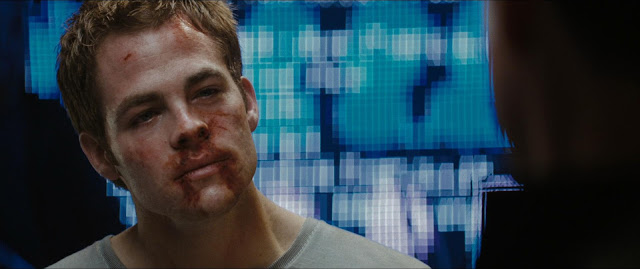 |
| Just say no to toxic!Kirk. |


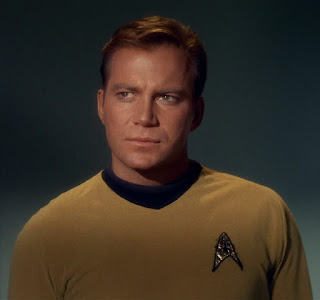
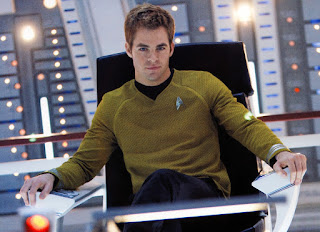

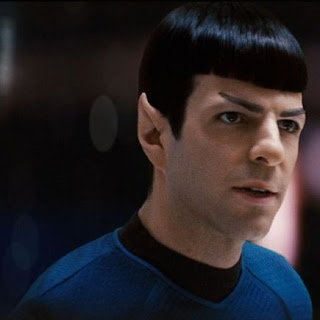
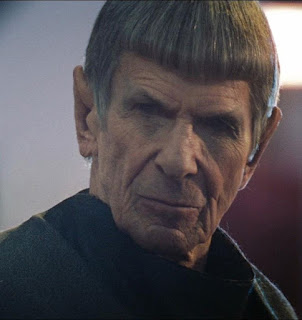

The way they translated Kirk into a toxic new form is almost emblematic of what Abrams did with nuTrek in general, where he kept the trappings and (to some extent) the character traits, but didn't bother translating the "soul" of the original work.
ReplyDeleteCompletely agreed. I get so mad about nuTrek.
DeleteOK thanks for this post it's quite informative and I have learned new things.
ReplyDeletehotmail signup process
KOLKATA ESCORTS
ReplyDeleteKOLKATA ESCORT
KOLKATA ESCORT SERVICE
KOLKATA INDEPENDENT ESCORTS
KOLKATA INDEPENDENT ESCORT
ESCORT IN KOLKATA
ESCORTS IN KOLKATA
VILLAGE CALL GIRLS
VILLAGE CALL GIRL
CALL GIRL
CALL GIRLS
ESCORT
ESCORTS
KOLKATA FEMALE ESCORTS
KOLKATA HOTEL ESCORTS
KOLKATA MODEL ESCORTS
KOLKATA CALL GIRL
KOLKATA CALL GIRL SERVICE
KOLKATA CALL GIRL SERVICE
KOLKATA CALL GIRLS
CALL GIRL
CALL GIRLS
CALL GIRLS SERVICE
CALL GIRL SERVICE
KOLKATA INDEPENDENT CALL GIRLS
KOLKATA INDEPENDENT CALL GIRL
ESCORT
ESCORTS
ESCORTS SERVICE
ESCORT SERVICE
ESCORT SERVICES
Get the best Dispatch riders in lagos here
ReplyDeletedispatch riders in Lagos
dispatch riders Lagos